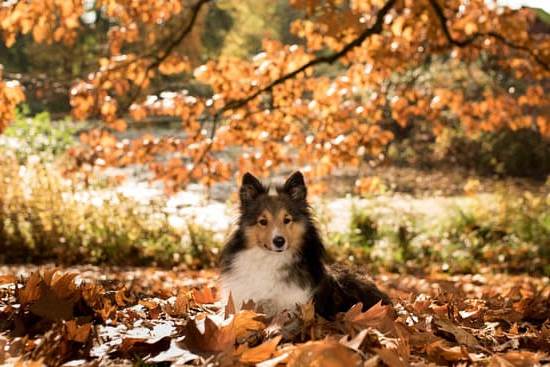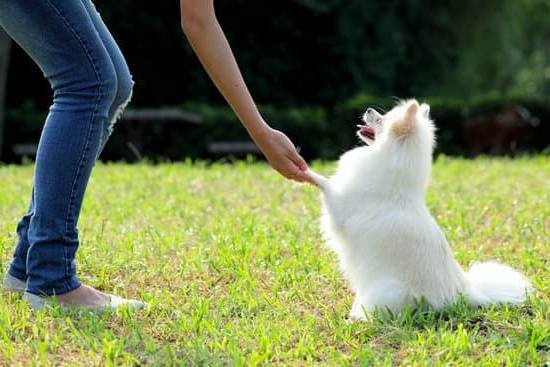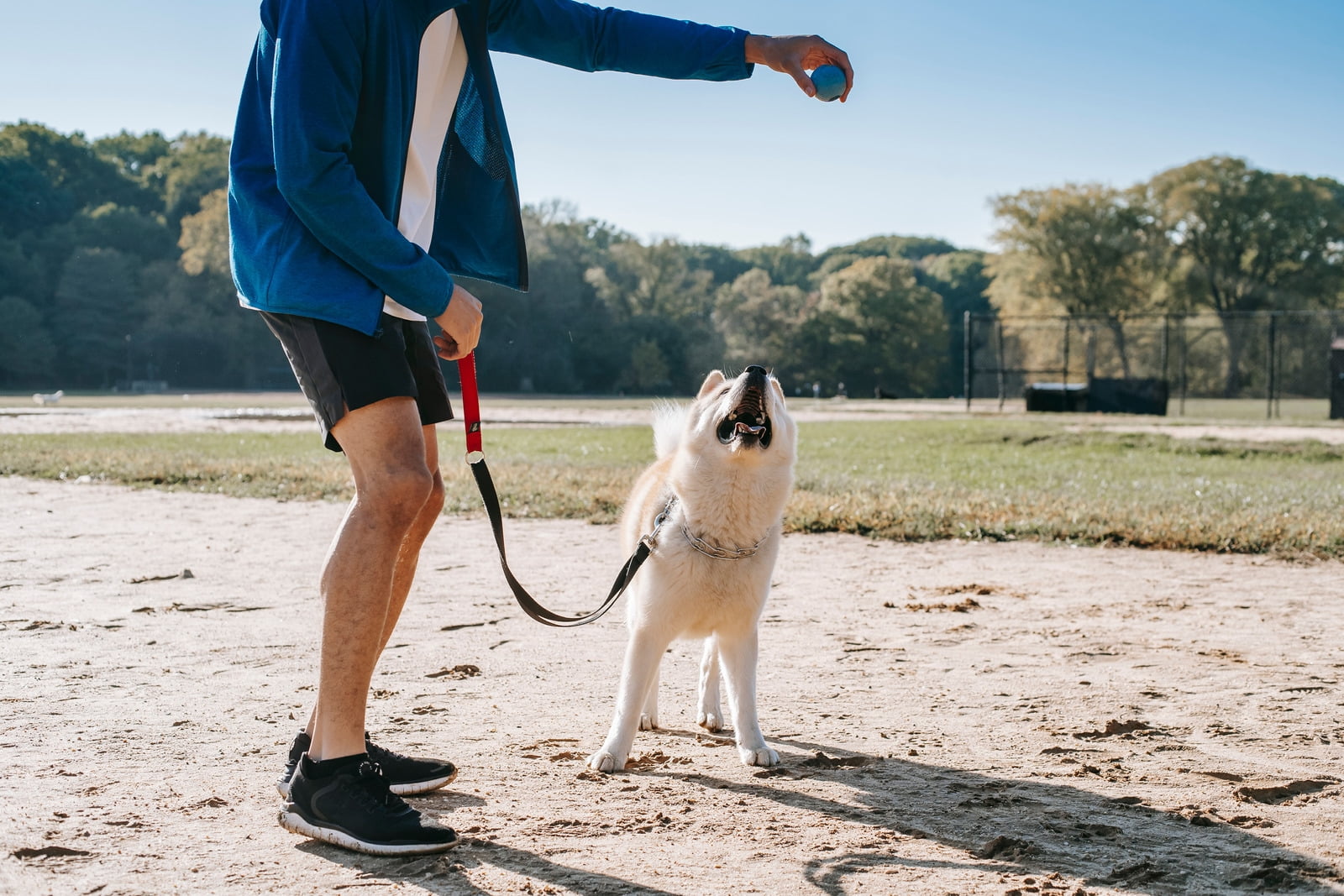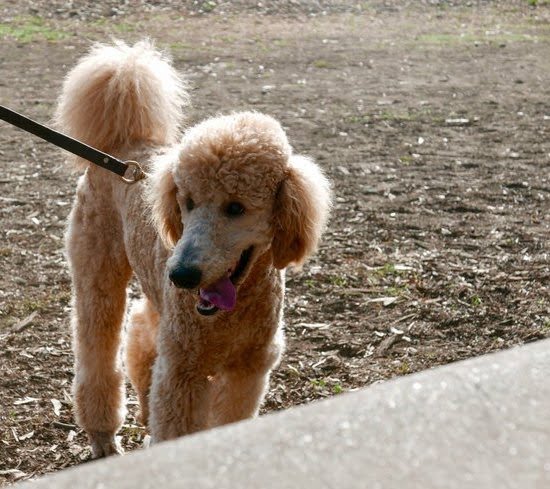Can you train a 9 year old dog? As a pet owner, you might wonder if it’s possible to teach an older dog new tricks. In this article, we will explore the challenges and benefits of training a senior dog.
We will discuss how to assess your dog’s capacity for learning, set realistic expectations, incorporate positive reinforcement, address behavioral issues, tailor training methods, overcome obstacles, and celebrate small victories in the training process. Training a 9 year old dog can be a rewarding journey that strengthens the bond between you and your furry companion.
Senior dogs have a lifetime of experience and habits that may pose challenges when it comes to training. However, with the right approach and understanding of their capabilities, it is indeed possible to successfully train a 9 year old dog. This introduction sets the stage for exploring the various aspects of training an older dog and provides insight into how patience and positive reinforcement play key roles in this process.
Throughout this article, we will delve into the practical tips and tricks for effectively training an older dog while also addressing special considerations for senior dogs with behavioral issues. It’s important to embrace the journey of training a 9 year old dog as an opportunity to strengthen the bond between you and your pet while also improving their quality of life. So let’s dive in and explore the amazing world of training senior dogs.
Assessing Your 9 Year Old Dog’s Capacity for Learning and Training
Understanding the Age-Related Limitations
When assessing the capacity for learning and training in a 9 year old dog, it is important to understand that age-related limitations may be present. Older dogs may have decreased sensory perception, reduced mobility, and potential health issues that can impact their ability to learn new commands or behaviors. It is essential to take these factors into consideration when embarking on a training journey with a senior dog.
Evaluating the Dog’s Cognitive Abilities
Before starting any form of training, it is crucial to evaluate the cognitive abilities of the 9 year old dog. Some dogs may still be sharp and capable of learning new tricks, while others may struggle with memory or attention span. This assessment will help in setting realistic expectations and determining the most effective training methods for the individual dog.
Seeking Professional Guidance
For owners who are unsure about their older dog’s capacity for learning and training, it can be beneficial to seek professional guidance from a veterinarian or animal behaviorist. These experts can provide valuable insight into the dog’s cognitive function and offer recommendations for tailored training approaches that take into account any age-related limitations or health concerns. Seeking professional guidance can help ensure that the training process is both effective and safe for the senior dog.
Setting Realistic Expectations for Training a Senior Dog
Training a senior dog, especially one that is 9 years old, comes with its own set of challenges and benefits. It’s important to set realistic expectations when it comes to training an older dog, as their capacity for learning may be different from that of a younger dog. Here are some key points to consider when setting realistic expectations for training a senior dog:
- Assess Your Dog’s Health: Before embarking on any training regimen, it’s crucial to assess your 9 year old dog’s health and physical condition. Any underlying health issues or physical limitations may affect their ability to learn new commands and behaviors. Consult with your veterinarian to ensure that your dog is healthy enough for training.
- Understand Limitations: It’s essential to understand that older dogs may have limitations in terms of energy levels and cognitive abilities. They may not be as spry or quick to pick up new commands as younger dogs. Be patient and understanding of these limitations while setting training goals.
- Be Realistic: When setting training goals for your senior dog, be realistic about what they can achieve. While they may not be able to perform advanced agility courses, they can still learn basic commands and behaviors with patience and consistency.
Training a 9 year old dog requires a different approach compared to training a younger dog. It’s important to take into consideration the unique needs and abilities of older dogs while setting expectations for their training journey.
Using positive reinforcement techniques such as treats, praise, and gentle guidance can be highly effective in motivating an older dog during training sessions. Additionally, incorporating plenty of patience into the training process is crucial. Remember that senior dogs may take longer to grasp new commands or behaviors, so it’s important not to rush or become frustrated during the training process.
Lastly, celebrating small victories along the way is essential when training a 9 year old dog. Recognizing and acknowledging progress, no matter how small it may seem, can help motivate both you and your senior pup to continue working towards their training goals.
Incorporating Positive Reinforcement and Patience in the Training Process
When it comes to training a 9-year-old dog, positive reinforcement and patience are crucial elements in the process. Older dogs may take longer to learn new commands or behaviors compared to younger counterparts, so it’s important to approach training with a positive and patient mindset.
The Power of Positive Reinforcement
Positive reinforcement involves rewarding your dog for exhibiting the desired behavior, which can include treats, praise, or toys. This method is especially effective for senior dogs as it creates a positive association with learning and encourages them to continue obeying commands. Using positive reinforcement also helps to build trust and strengthen the bond between you and your older dog.
Practicing Patience
Training a 9-year-old dog requires an extra dose of patience. It’s important to remember that older dogs may have physical limitations or cognitive decline that can affect their ability to learn new things quickly. As a result, it’s essential to be patient and understanding throughout the training process. Avoid getting frustrated if your senior dog doesn’t grasp a command right away, and instead, provide gentle guidance and encouragement.
Incorporating positive reinforcement and patience into your training routine will contribute to a more enjoyable experience for both you and your senior dog. By focusing on creating a supportive environment based on rewards and understanding, you can help your older dog thrive during training sessions while strengthening your bond along the way.
Special Considerations for Training Older Dogs With Behavioral Issues
When it comes to training older dogs with behavioral issues, it is important to approach the process with patience and understanding. Many older dogs may have developed certain behaviors over the years that could be challenging to change. It is essential to identify the root cause of these behavioral issues before beginning any training regimen.
One special consideration when dealing with behavioral issues in older dogs is their physical health. Pain or discomfort due to aging or an underlying health condition can lead to behavioral problems such as aggression or reluctance to follow commands. Before embarking on a training program, it is crucial to have your senior dog thoroughly examined by a veterinarian to rule out any medical causes for their behavior.
Additionally, it’s important to understand that the training progress may be slower for older dogs with behavioral issues compared to younger, more malleable dogs. This requires a great deal of patience and consistency from the owner. Celebrating small victories and progress along the way is key in maintaining motivation and keeping the dog engaged in the training process.
| Behavioral Issues | Special Considerations |
|---|---|
| Aggression | Identify root cause and address any underlying pain or discomfort |
| Anxiety | Adopt a calm and reassuring approach, seek professional help if needed |
| Fearfulness | Gradually expose them to new experiences and environments in a positive way |
Tailoring Training Methods to Suit the Needs and Abilities of Senior Dogs
When it comes to training a 9-year-old dog, it’s important to understand that their needs and abilities may be different from those of a younger dog. Tailoring the training methods to suit these specific needs is essential for a successful training journey. One important consideration is the dog’s physical health and any age-related conditions they may have. It’s crucial to adjust the training exercises and intensity level according to their physical capabilities.
Another key factor in tailoring training methods for senior dogs is their mental sharpness and cognitive abilities. Older dogs may not have the same level of alertness or quick thinking as younger ones, so patience and understanding are vital during the training process. Simple, clear commands and consistent routines can help older dogs understand what is expected of them and make the learning process easier for them.
Furthermore, it’s important to take into account the individual personality of the senior dog when tailoring training methods. Some older dogs may be more set in their ways or resistant to change, requiring a gentle and encouraging approach to training. On the other hand, some senior dogs may still be eager learners and respond well to new challenges. Understanding the unique traits of your dog will allow you to adapt your training methods accordingly.
Overall, tailoring training methods to suit the needs and abilities of senior dogs requires empathy, flexibility, and an understanding of the aging process in canines. By making adjustments based on their physical health, mental capabilities, and individual personality traits, you can create a positive and effective training experience for your 9-year-old dog.
| Consideration | Adaptation |
|---|---|
| Physical health | Adjusting exercises & intensity |
| Mental sharpness | Patience & clear commands |
| Individual personality | Gentle approach & understanding traits |
Overcoming Obstacles and Celebrating Small Victories in Training a 9 Year Old Dog
Training a senior dog presents its own set of challenges, but with patience and dedication, it is possible to overcome obstacles and celebrate small victories along the way. Here are some important considerations for successfully navigating the training process with a 9 year old dog:
- Recognize the limitations: As dogs age, their physical and mental capacities may change. It’s essential to understand that your older dog may not have the same level of energy, stamina, or ability to learn as a younger dog. Be mindful of your dog’s limitations and tailor your training approach accordingly.
- Be patient and persistent: Training an older dog takes time and requires patience. It’s important to be persistent in your efforts while also understanding that progress may be slower compared to training a younger dog. Celebrate small victories along the way, such as learning a new command or displaying improved behavior.
- Adjust your expectations: Setting realistic expectations is crucial when training a senior dog. While it’s possible for older dogs to learn new behaviors, it’s important to adjust your expectations based on your dog’s age and previous experiences. Focus on maintaining existing skills and behaviors while introducing gentle, gradual changes.
Overcoming obstacles in the training process may involve adapting your methods, being patient with your dog’s progress, and seeking professional guidance if needed. Remember that each small victory is worth celebrating as you work towards strengthening the bond between you and your 9 year old companion.
Tips and Tricks for Successfully Training an Older Dog
As you embark on the journey of training a 9 year old dog, it’s important to keep in mind some tips and tricks that can help make the process smoother and more successful. While older dogs may have their own set ways, they are still capable of learning and adapting to new behaviors with the right approach. Here are some valuable pointers to consider as you work on training your senior canine companion.
First and foremost, it’s crucial to be patient and understanding when working with an older dog. They may not pick up new commands as quickly as younger dogs, so maintaining a calm and encouraging demeanor is key. It’s also important to use positive reinforcement techniques such as treats, praise, and affection to motivate your senior dog during training sessions. This will help keep them engaged and eager to learn.
Additionally, it’s essential to tailor your training methods to suit the specific needs and abilities of your older dog. Consider any physical limitations or health issues they may have when determining what tasks or commands are realistic for them to learn. And remember, consistency is key.
Set realistic goals for your senior dog’s training progress and celebrate small victories along the way. This will help keep both you and your furry friend motivated and encouraged throughout the training process.
Conclusion
Training a 9 year old dog is certainly not without its challenges, but the benefits of doing so can be incredibly rewarding. As with any dog, it is important to assess their capacity for learning and training, taking into consideration any behavioral issues or limitations that may arise. Setting realistic expectations and incorporating positive reinforcement and patience are crucial in the training process.
It is important for pet owners to understand that senior dogs may require different training methods compared to younger dogs. Tailoring training methods to suit the needs and abilities of senior dogs can make all the difference in their progress. Additionally, overcoming obstacles and celebrating small victories are key components of successfully training an older dog.
Ultimately, embracing the journey of training a 9 year old dog can lead to the development of an amazing bond between owner and pet. While it may take time and effort, the rewards of successfully training an older dog are well worth it.
The process allows for a deeper connection with your furry companion, while also providing mental stimulation and enrichment for the senior dog. With patience, understanding, and a lot of love, training a 9 year old dog can be a fulfilling experience for both you and your canine companion.
Frequently Asked Questions
Is It Too Late to Train a 9 Year Old Dog?
It’s not necessarily too late to train a 9-year-old dog, but it may require more patience and consistency compared to training a younger dog. Older dogs can still learn new behaviors and commands, especially if the training is tailored to their individual needs and abilities.
The key is to use positive reinforcement techniques and be understanding of any physical limitations or health issues the dog may have.
At What Age Is a Dog Not Trainable?
There isn’t a specific age when a dog becomes untrainable, as it largely depends on the individual dog’s health, temperament, and previous training experience. However, older dogs may have more difficulty learning new skills or behaviors due to factors such as arthritis, hearing loss, or cognitive decline.
It’s important to adjust training methods to accommodate the dog’s age and capabilities while being patient and understanding throughout the process.
Is 9 Considered Old for a Dog?
In general, 9 years old is considered old for a dog, especially for larger breeds. At this age, many dogs start to show signs of aging such as decreased energy levels, reduced mobility, or health issues.
While some dogs remain active and healthy well into their senior years, it’s essential for pet owners to provide extra care and attention to ensure their aging canine companions remain comfortable and happy. Regular veterinary check-ups can also help address any age-related health concerns that may arise in older dogs.

Welcome to the blog! I am a professional dog trainer and have been working with dogs for many years. In this blog, I will be discussing various topics related to dog training, including tips, tricks, and advice. I hope you find this information helpful and informative. Thanks for reading!





